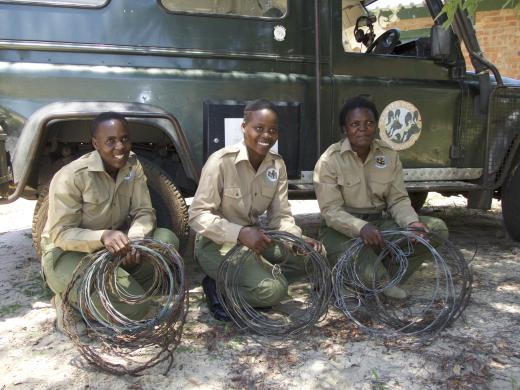
Throughout March, WildAid is shining a spotlight on some of the incredible women in conservation who are working tirelessly to protect wildlife across Africa.
Belinda Ncube, a mother of one, is a ranger with Painted Dog Conservation in Zimbabwe. She has been with the unit since 2017, rising through the ranks to become Team Leader in their deployments. She leads patrol teams in the wild on foot removing snares and checking for any poaching activities in the area. Belinda is responsible for her team’s safety while in the bush, choosing the right places to camp and maintaining discipline.
“Working in wildlife conservation gives me great satisfaction, knowing each snare we remove saves an animal, and that animal contributes to tourism and supports my community. Because of my job, I am also able to take care of my daughter,” says Belinda.
“I was inspired to pursue a career in conservation after attending a conservation camp called Iganyana Children’s Bush when I was still in school. This taught me the importance of wildlife and viewing wildlife in a positive way. Before, all I knew was that wild animals kill our cows and eat our crops and we must kill them too. After getting insights into the life of wildlife during camp and getting into the park for the first time, my view was changed. From then on, I wanted to be a champion for wildlife protection. I made a commitment then that this is what I will do and help my community to also understand how people and wildlife can coexist.”
“We have to encourage girls to do what normally is reserved for boys. This will remove the fears and stigma.” Belinda wants girls who are thinking of following a career in conservation to not be afraid, as this is no longer a men-only sector.
Belinda believes that women in conservation face a lack of knowledge about their own potential to work in the often challenging environments and the dangers of working with wildlife, but affirms that women can do the job just as well as men.
“There is a lack of support for women in conservation. Women also have different biological needs to men, and sometimes employers don’t want to be bothered by our “extra” needs. Without an understanding organization it would be tough for a woman. We need maternity leave; we need our own spaces in the bush and at the camp accommodation, so this can discourage other organizations. However, I have seen many women now taking the jobs and filling the camps.”

